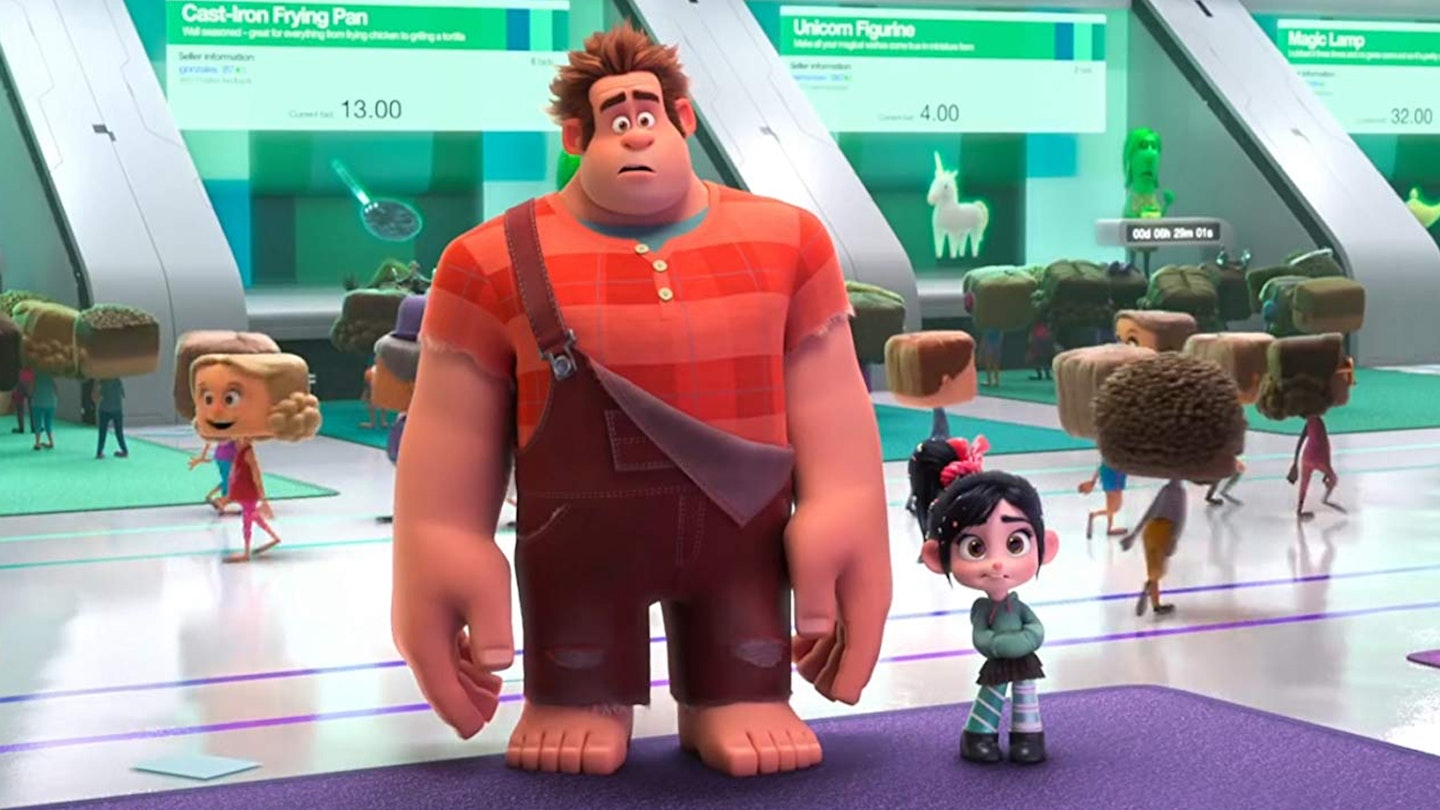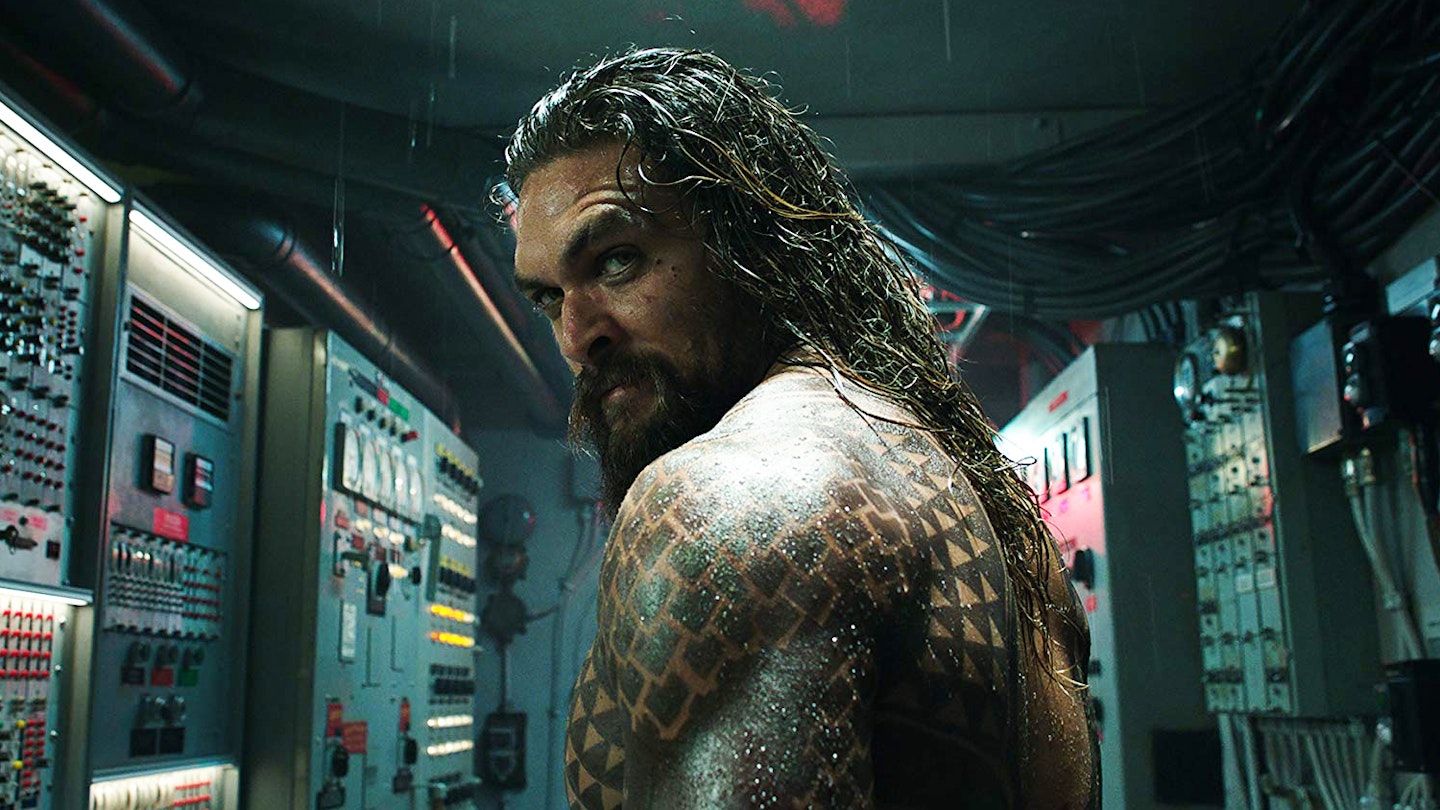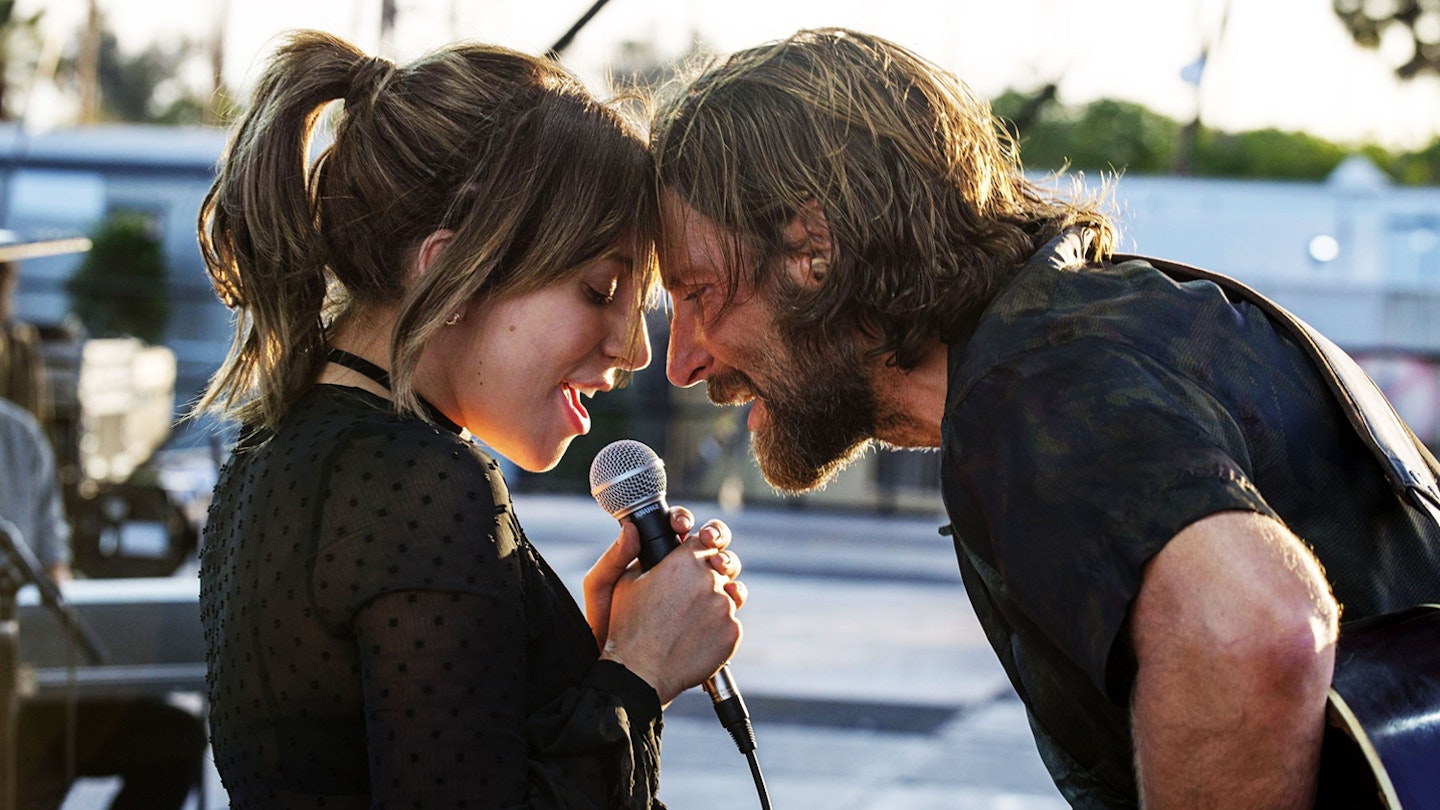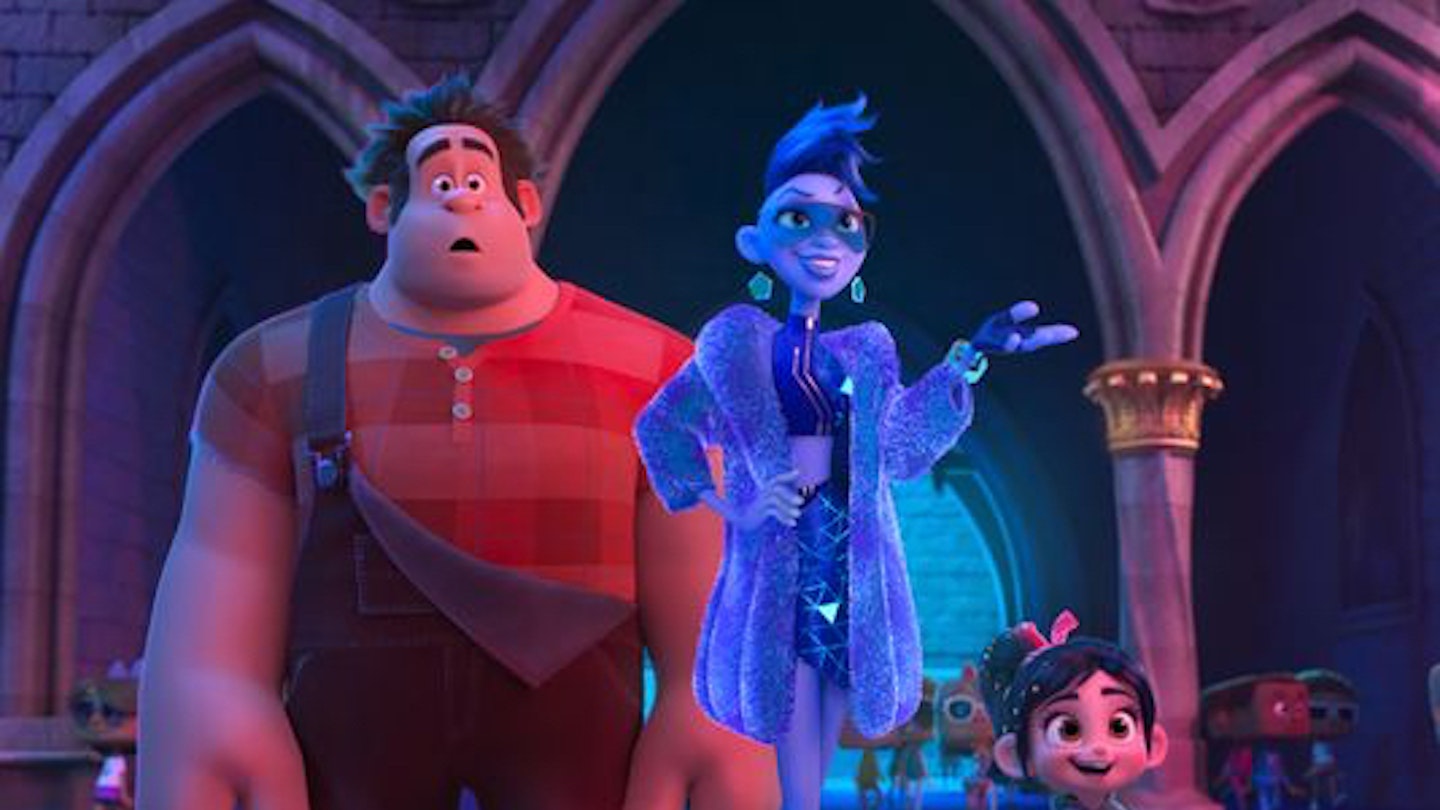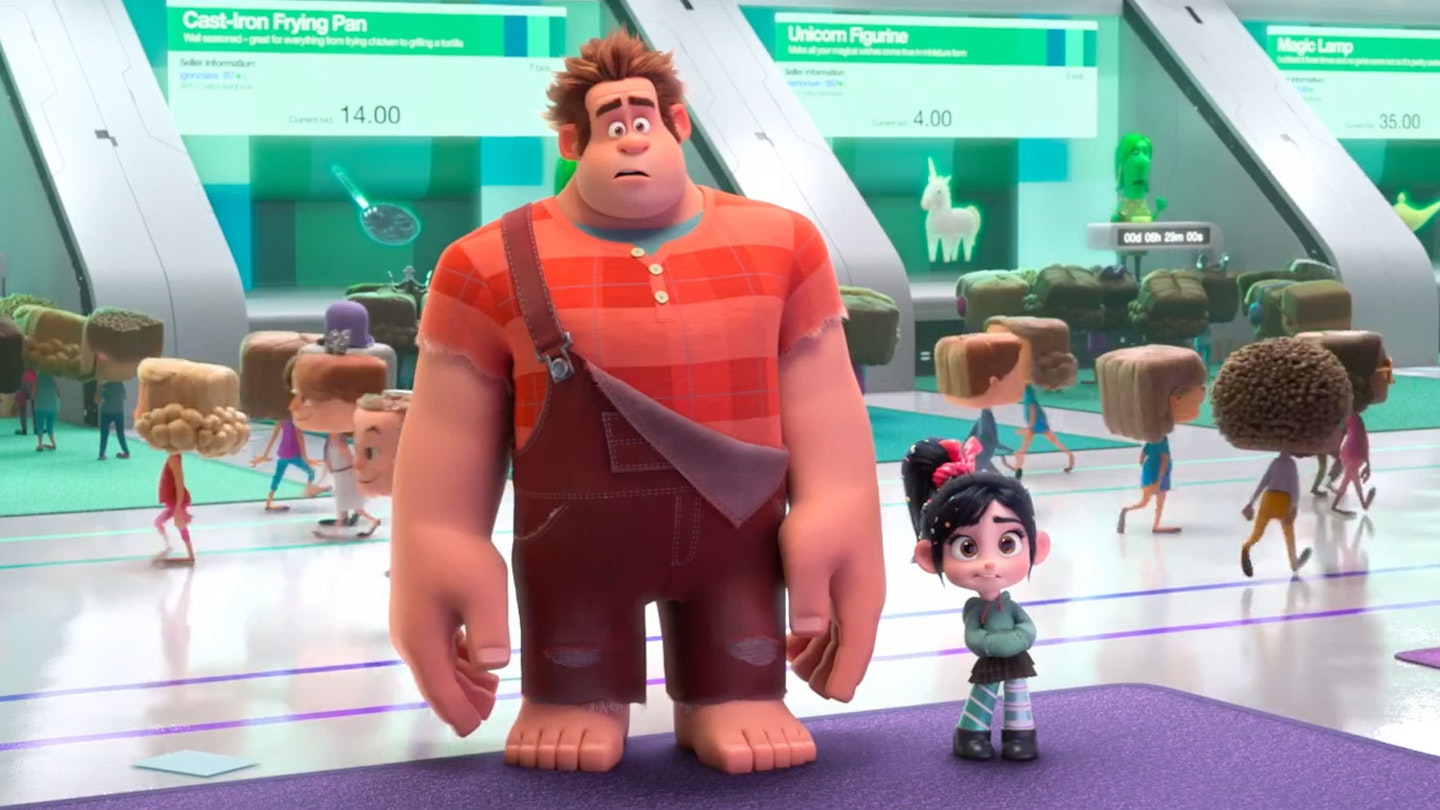For a film about a fictional ’80s arcade game character, Ralph Breaks The Internet sure raises some weighty issues. We’re not ten minutes into the Wreck-It Ralph sequel when a broken video game cabinet creates the displacement of several hundred pixelated characters, all looking for a new home among Litwak Arcade’s other coin-op machines. It’s an interesting set-up — could this brightly coloured, sugar-coated cartoon be a modern-day fable, about to slyly educate its young audience about the world’s current refugee crisis? Sadly, no. A couple of scenes later it’s all but forgotten, the film far more interested in sending its two main characters — best friends Ralph (Reilly) and Vanellope (Silverman) — on a pop culture-crammed adventure to the internet.
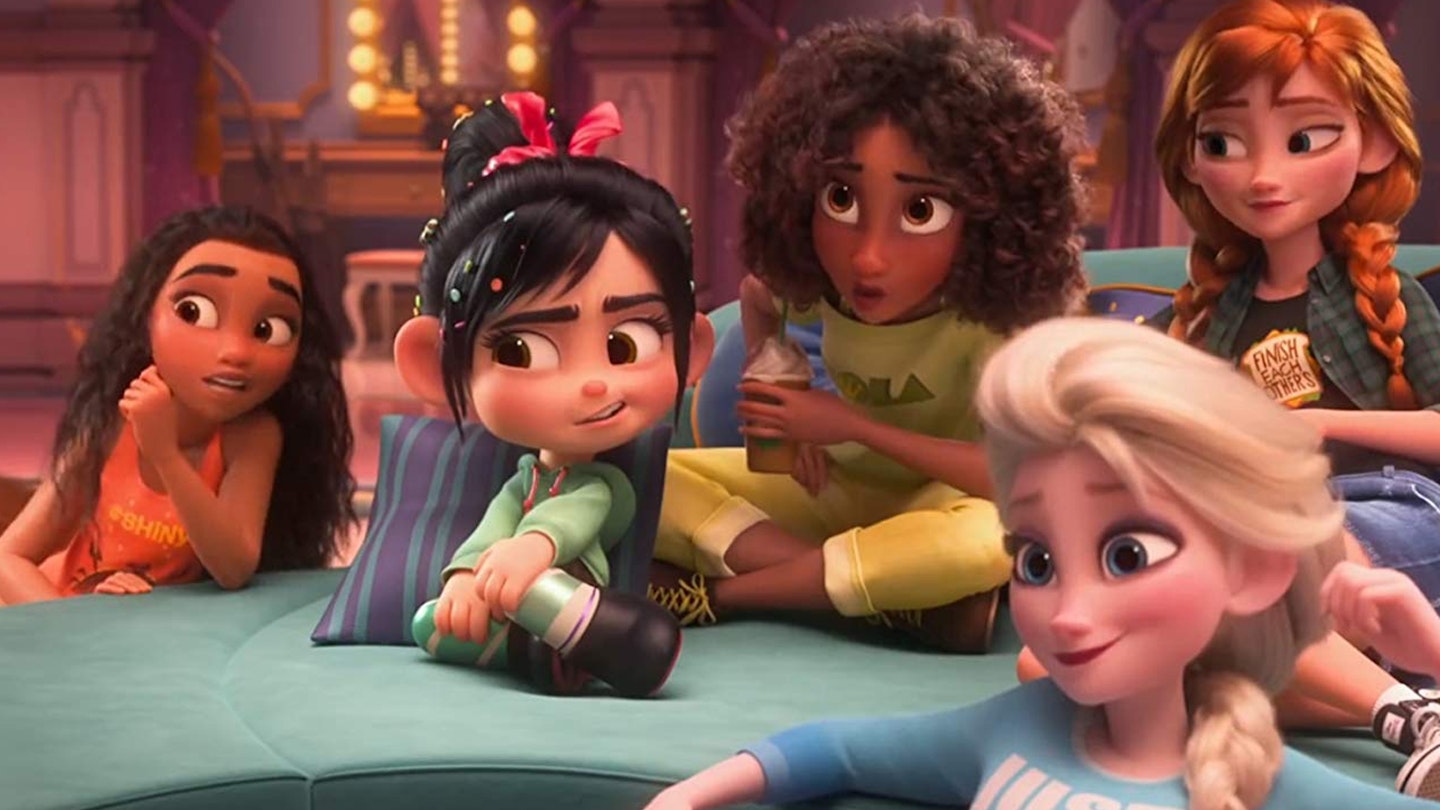
The internet — with its high-rise representations of the world’s biggest online brands — represents the big city to Litwak Arcade’s small town, and it’s here Ralph Breaks The Internet finds both its central conflict and its message. There are lessons here but — with Vanellope enchanted by the possibilities suddenly open to her, and Ralph set on achieving their task then returning home to his usual routine — it’s about the nature of friendship. Not a bad thing to learn, it’s just a well-trodden set-up and, in the context of the film’s opening, a missed opportunity.
Funny but forgettable.
Still, it’s an entertaining and rapidly paced adventure, which takes its heroes from eBay to a dangerous urban MMORPG, to YouTube substitute Buzztube, to (a sanitised version of) the dark web. They’re hassled by pop-up advertisers, get distracted by clickbait and try their hands at loot hunting. The highlight, however, is Vanellope’s trip to ‘Oh My Disney’ (a real website) — it’s the funniest section of the film, especially her encounter with the studio’s roster of Princesses, as the studio sends up its own creations but also fights back against the most common online criticisms of its female heroes. Sharp and knowing, it’s also a triumph of animation and characterisation. For example, the original, hand-drawn Ariel (The Little Mermaid) was slightly more manic in her movements than, say, the stronger, more noble Pocahontas (Pocahontas), and that’s mirrored here.
If only all of Ralph Breaks The Internet was so inspired, instead of being mostly content to make funny but first-base jokes about social media culture. These characters have lived in isolation at the arcade — wouldn’t their escape leave them faced with questions about the nature of their being as they discover thousands of other similarly segregated versions of themselves exist? It’s not the case that its target audience couldn’t handle it — Toy Story was smart enough to tackle such existential crises, and that was over 20 years ago. But then, that’s the difference between an enduring masterpiece and something that just achieves being funny but forgettable. This is resolutely the latter.
